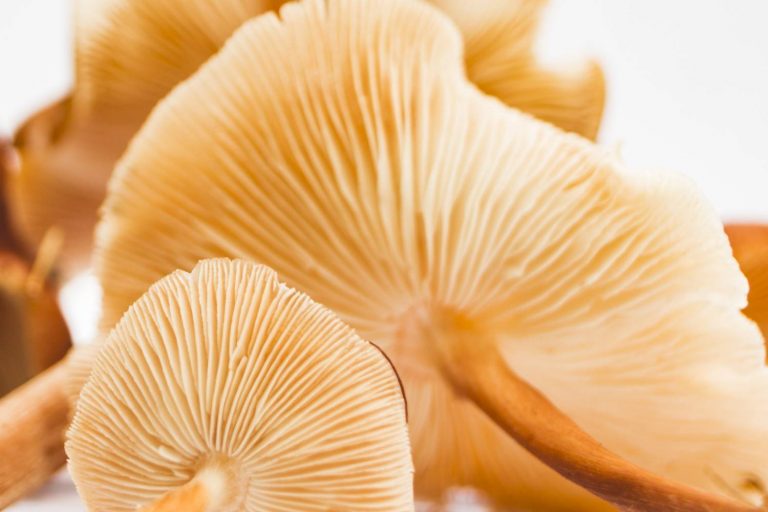Contents
5 Nuts to Snack on for a Calmer Mind Daily
Did you know that snacking on certain nuts can actually help you feel calmer? It sounds almost too good to be true, but let’s dive into the science behind it. Many of us lead stressful lives, juggling work, family, and personal responsibilities. In this whirlwind, finding small ways to promote mental well-being is crucial. Enter nuts: those tiny powerhouses of nutrition that can be your go-to snack for a calmer mind.
In this article, we’ll explore five types of nuts that not only taste great but also boast impressive benefits for mental health. Each nut comes with its own unique profile of nutrients that can help reduce anxiety and promote a sense of calm. So, let’s get cracking!
1. Almonds
Why They’re Great for You
Almonds are rich in magnesium, a mineral known for its role in reducing anxiety and improving mood. A study published in the Journal of the American College of Nutrition indicated that magnesium deficiency could lead to increased levels of anxiety. Snacking on a handful of almonds (about 23 nuts) can provide nearly 20% of your daily magnesium needs.
Pros and Cons
- Pros: High in healthy fats, fiber, and protein; supports heart health; aids in blood sugar control.
- Cons: High in calories; can be a choking hazard for young children.
How to Enjoy Them
Almonds can be eaten raw, roasted, or even blended into almond butter. Add them to yogurt, salads, or smoothies for an extra crunch.
2. Walnuts
Why They’re Great for You
Walnuts are unique because they contain a high amount of omega-3 fatty acids, which are essential for brain health. Research published in The Journal of Nutrition found that omega-3s can help reduce symptoms of depression and anxiety. Just a small serving of walnuts can significantly boost your omega-3 intake.
Pros and Cons
- Pros: Anti-inflammatory properties; may improve cognitive function; high in antioxidants.
- Cons: Can be expensive; some people may have allergies.
How to Enjoy Them
Add walnuts to your oatmeal, sprinkle them on a salad, or toss them into your favorite trail mix. They also make a delicious topping for yogurt or desserts.
3. Pistachios
Why They’re Great for You
Pistachios are not just tasty; they’re also packed with protein, fiber, and healthy fats. A study from the American Journal of Clinical Nutrition found that snacking on pistachios can help lower blood pressure and reduce stress levels. Their vibrant green color comes from antioxidants, which combat oxidative stress in the body.
Pros and Cons
- Pros: Can help with weight management; promote heart health; rich in vitamins and minerals.
- Cons: Often come with added salt; may be hard to resist portion control.
How to Enjoy Them
Try pistachios as a standalone snack, or add them to your favorite dishes for a nutty flair. They can even be blended into pesto for a unique twist.
4. Cashews
Why They’re Great for You
Cashews contain tryptophan, an amino acid that helps produce serotonin, the “feel-good” hormone. A study published in Nutrients highlighted the role of tryptophan in mood regulation, making cashews an excellent choice for those looking to boost their mental health.
Pros and Cons
- Pros: Creamy texture; versatile; rich in iron and zinc.
- Cons: High in calories; some may find them too rich or sweet.
How to Enjoy Them
Cashews can be enjoyed raw, roasted, or even as a creamy cashew butter. Add them to stir-fries, smoothies, or salads for a delightful crunch.
5. Brazil Nuts
Why They’re Great for You
Brazil nuts are incredibly rich in selenium, a mineral linked to reduced anxiety and improved mood. A study in Biological Psychiatry found that higher selenium levels were associated with lower levels of anxiety and depression. Just one or two Brazil nuts can provide your daily selenium requirement.
Pros and Cons
- Pros: Supports immune function; high in healthy fats; may improve thyroid function.
- Cons: Risk of selenium toxicity if consumed in excessive amounts; can be pricey.
How to Enjoy Them
Snack on Brazil nuts as-is, or chop them up and sprinkle them on top of your breakfast cereal or smoothie bowl. Their rich flavor can also enhance baked goods.
FAQs
Q1: How many nuts should I eat daily for mental health benefits?
A: A handful (about 1 ounce) of mixed nuts daily is generally recommended for health benefits.
Q2: Are there any downsides to eating nuts?
A: While nuts are nutritious, they are calorie-dense. Moderation is key to avoid excess calorie intake.
Q3: Can I eat nuts if I have a nut allergy?
A: If you have a nut allergy, it’s essential to avoid all nuts and consult with a healthcare provider for alternatives.
Q4: What’s the best way to store nuts?
A: Store nuts in an airtight container in a cool, dry place. Refrigeration can extend their shelf life.
Conclusion
Incorporating nuts into your daily routine can be a delicious and effective way to promote a calmer mind. With their rich nutrient profiles, almonds, walnuts, pistachios, cashews, and Brazil nuts offer a variety of health benefits that go beyond just satisfying hunger.
The next time you’re feeling overwhelmed, reach for a handful of these nutty snacks. Not only will you be treating your taste buds, but you’ll also be giving your brain the nutrients it craves to help manage stress and anxiety.
Remember, though, that while snacking on nuts can aid in mental well-being, it’s just one piece of the puzzle. A balanced diet, regular exercise, and mindfulness practices are all essential for maintaining a calm mind.
This article is for educational purposes only and is not a substitute for professional medical advice. Always consult a qualified healthcare provider before making changes to your health routine.
References
- Barbagallo, M., & Dominguez, L. J. (2010). Magnesium and aging. Current Pharmaceutical Design, 16(7), 832-839. Link
- Ristic, I., & Stojanovic, J. (2010). The role of omega-3 fatty acids in mood and behavior. The Journal of Nutrition, 140(3), 505-511. Link
- Wu, A. M., & Chiu, H. (2019). Tryptophan and serotonin in the pathophysiology and treatment of mood disorders. Nutrients, 11(8), 1858. Link
- Rayman, M. P. (2012). Selenium and human health. The Lancet, 379(9822), 1256-1268. Link
Get Your FREE Natural Health Guide!
Subscribe now and receive our exclusive ebook packed with natural health tips, practical wellness advice, and easy lifestyle changes, delivered straight to your inbox.




